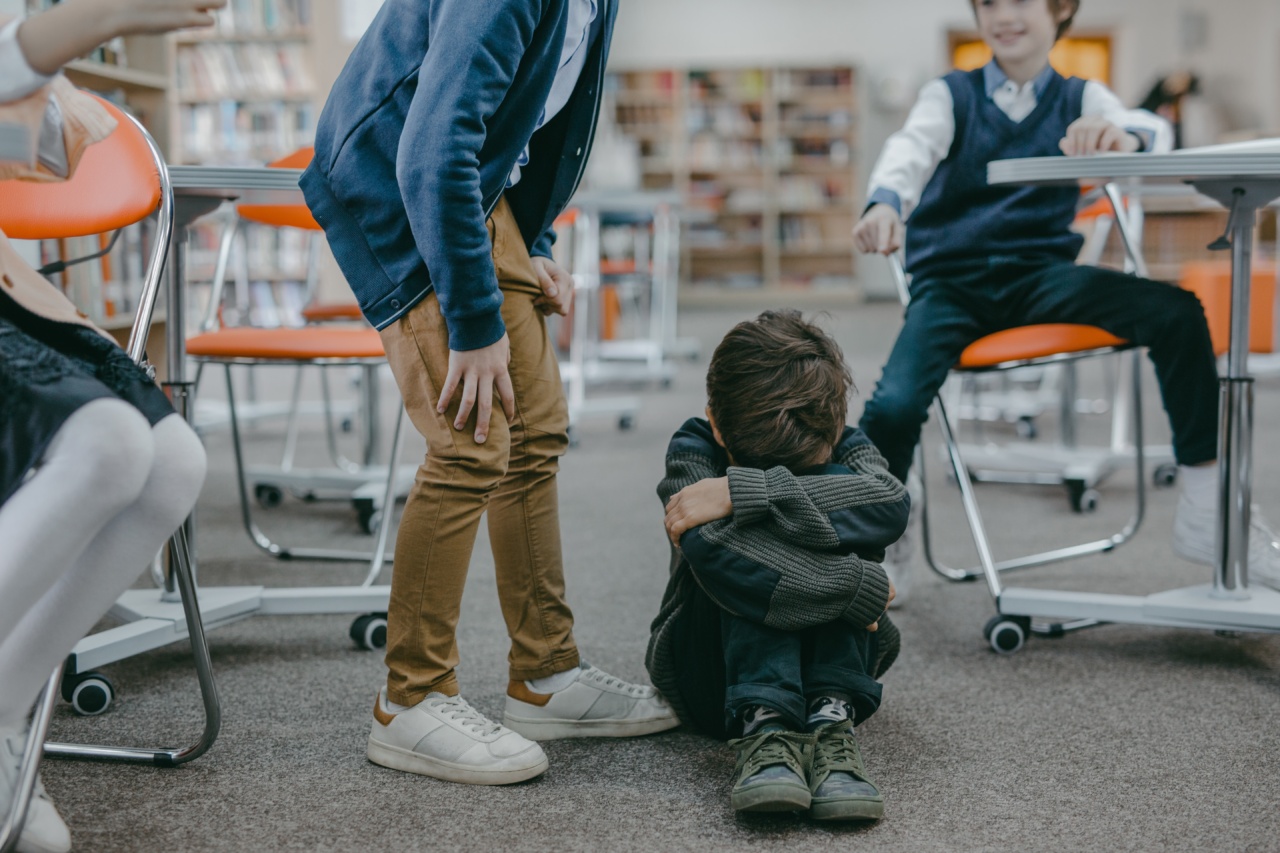Bullying is a widespread problem that affects children worldwide. It is a repeated and intentional behavior that leads to harm, humiliation, and fear in the victim.
According to the National Center for Educational Statistics, one out of every five students reports being bullied. The short-term effects of bullying, such as physical injuries and emotional distress, are well-known. However, the long-term effects of bullying on a child’s psychology are equally devastating.
Bullying can leave a lasting impact on the victim’s mental health, decision-making ability, and social skills.
Post-Traumatic Stress Disorder (PTSD)
Bullying can be considered a form of trauma, which can lead to the development of Post-Traumatic Stress Disorder (PTSD) in the victim. PTSD is a mental health disorder that emerges from exposure to a traumatic event, such as bullying.
Children who have been bullied may have nightmares, flashbacks, anxiety, irritability, and even depression. The symptoms of PTSD can persist for years, affecting the child’s ability to function normally in daily life.
Anxiety and Depression
The long-term effects of bullying on mental health can lead to anxiety and depression in children.
A study published in the Journal of Adolescent Health found that children who were bullied are more likely to experience anxiety and depression by the age of 18. The study also found that the more severe the bullying, the higher the likelihood of developing mental health problems.
Anxiety and depression can negatively impact a child’s life, affecting their ability to learn, form relationships, and make healthy decisions.
Substance Abuse
Children who have been bullied are at a higher risk of developing substance abuse issues later in life.
A study published in the Journal of Adolescent Health found that victims of bullying were more likely to engage in substance abuse by the time they reached 18. Substance abuse can lead to a host of long-term problems, including addiction, health issues, and legal problems.
Difficulty Forming Relationships
Bullying can have long-term effects on a child’s ability to form relationships. Children who experience bullying may become withdrawn or develop trust issues. They may find it difficult to build relationships or to feel comfortable around others.
These effects can persist into adulthood, making it challenging for the individual to develop healthy relationships.
Aggression and Violence
Bullying can also lead to aggressive and violent behavior in children. Children who have been bullied may turn to aggression as a way to cope. They may feel a sense of power when they hurt others, which can be addictive.
Violence can have devastating consequences, leading to injury, criminal charges, and even death.
Eating Disorders
Bullying can also lead to the development of eating disorders in children. Children who experience bullying may feel a lack of control over their lives, leading to a desire to control their bodies.
Eating disorders such as anorexia nervosa, bulimia nervosa, and binge-eating disorder can take hold, leading to long-term physical and emotional damage.
Low Self-Esteem
Bullying can have a lasting impact on a child’s self-esteem. Children who have been bullied may internalize negative messages about themselves, leading to feelings of worthlessness and shame.
These feelings can persist into adulthood, leading to behaviors such as self-harm, isolation, and depression.
Difficulty in School
Bullying can also have long-term effects on a child’s academic performance. Children who experience bullying may have difficulty concentrating, performing well on tests, and engaging in class.
This can lead to lower grades and difficulty completing school. If not addressed, these problems can persist into adulthood, affecting the individual’s ability to succeed in the workplace.
Impaired Decision-Making
Bullying can also have long-lasting effects on a child’s decision-making abilities. Children who have been bullied may develop low confidence and self-efficacy, leading to difficulty making decisions.
They may feel a lack of control over their lives, leading to a tendency to make impulsive or self-destructive choices. These effects can persist into adulthood, leading to problems such as addiction, debt, and legal issues.
Poor Physical Health
The long-term effects of bullying on a child’s psychology can also lead to poor physical health. Children who have been bullied may experience chronic stress, leading to physical symptoms such as headaches, stomachaches, and fatigue.
They may also engage in unhealthy behaviors, such as smoking or drug use, as a way to cope with their stress. Over time, these behaviors can lead to long-term physical problems, such as heart disease, diabetes, and cancer.































